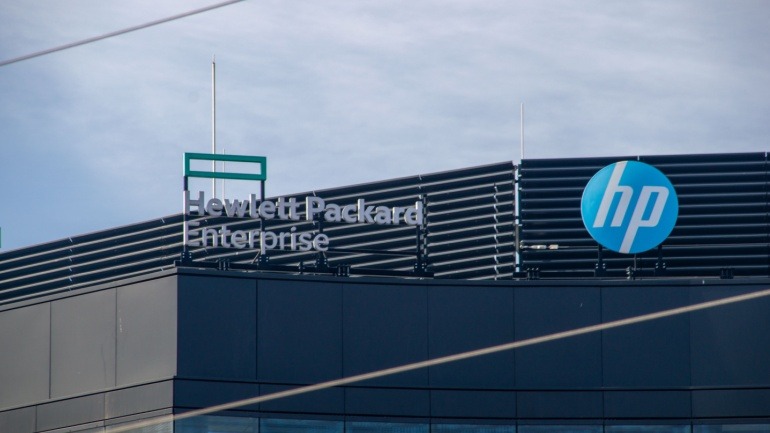The smartphone’s market shrank of 0.1% last year, and for this year, IDC (International Data Corporation) is expecting the same lack of growth. This is why the entire industry is waiting for the 5G technology to help the market go back to its former glory. The last year showing a significant growth was 2016 with a 2.5% progress. With the availability of 5G network and smartphones, tech companies expect to go back to 2016 figures in 2022. But the smartphone industry needs to solve some issues as the way 5G radio waves work can have an impact on the quality of the call and daily use of the device. As Dan Jones from Light Reading explains, it could be a similar problem to what happened with the “antennagate” on iPhone 4. Basically, this phenomenon called “human blockage”, impacts quality of the call, as the way someone holds the phone decreases…
The investment required to upgrade a network to support standalone 5G technology is important. JP Morgan think this is the reason why Telecom companies stocks did not do so well last year. There is a serious concern that the investment might not be as effective as expected. The lack of return put an important shade on some valuation for some asian (China, Japan and South Korea) and Australian telecommunications stocks. Those worries could be explained as the daily applications and advantages of 5G technology are yet to be seen and to be invented. James Sullivan,head of Asia ex-Japan equity research at J.P. Morgan explained “It’s not really about faster download speeds,” he said. “It’s about internet of things, autonomous vehicles and things of that nature for which no one understands a monetization case for networks yet.” 5G will not only be customer centered but also will help companies in processing…
That’s what researchers at CCS Insight believe. According to their report, China and the United States will lead the way in deploying the next generation of mobile technology. Commercial deployments of 5G in the U.S. are expected as soon as the end of 2018. CCS Insight’s forecast of an initial U.S. lead corroborates with a report from the GSMA at the end of March 2018, but the firms appear to disagree on the rest of their rankings for the period prior to 2025. In the GSMA’s report, by 2025, China falls to fourth place with 25 percent of mobile connections being 5G. The United States takes the lead with 49 percent, followed by Japan (45 percent) and Europe (31 percent). IN 2025, MOBILE BROADBAND IS STILL PREDICTED TO REPRESENT 98% OF ALL 5G CONNECTIONS “The industry might be struggling to establish the business models for investment in 5G, but this isn’t stopping leading…
In the evolving world of European digital infrastructure, major players like Indra and AST SpaceMobile are making strategic moves that could redefine VoIP capabilities. Indra’s acquisition of Hispasat reinforces its ambition in space communication, while AST’s recent satellite launch promises to bolster connectivity in underserved regions, crucial for robust VoIP services.
In an age where robust connectivity defines our daily lives, VOIP users demand seamless performance. MediaTek’s hybrid home gateways offer a game-changing solution. By integrating multiple access technologies, these devices ensure uninterrupted networking. Such innovation is crucial for VOIP services that underpin remote work, healthcare, and education, safeguarding reliable communication lines.
The telecom industry faces a turning point as 5G emerges and 6G approaches. For telecom operators, adopting agile VoIP solutions could be transformative. Traditional systems are often expensive and cumbersome, hindering innovation. By embracing cloud-native, no-code platforms, operators can boost revenue, streamline operations, and enhance customer satisfaction, staying competitive.
Europe’s digital infrastructure wave is captivating stakeholders, especially data centers. A €1.7 billion Deutsche Glasfaser deal highlights this boom amid complex AI Gigafactory delays. As demand for cloud computing and VoIP services rises, data center investments promise growth despite energy challenges. Fibre networks further boost connectivity, vital for VoIP advancements.
HCLTech is enhancing its telecom capabilities through the strategic acquisition of HPE’s Telco Solutions business. This expands HCL’s expertise in VoIP, AI, and cloud-native services for the telecom sector. Incorporating Telco Solutions, HCLTech strengthens its telecommunication IP, product engineering, and fosters relationships with Communication Service Providers globally.
2025 marked a transformative era for the Test and Measurement sector, with groundbreaking advancements from orbital data centers to photonic AI satellites. A crucial highlight was Vodafone’s collaboration for 5G SA networks, enhancing telecom with automated software. Emerging markets like AI data centers and satellite communications experienced a notable focus shift.
Discover how today’s network infrastructure struggles to support AI’s explosive growth. A Nokia study highlights the urgent need for modernization, as current networks fall short of meeting AI demands. With increased focus on AI-native networks, industries must invest to leverage this AI supercycle and avoid bottlenecks.













